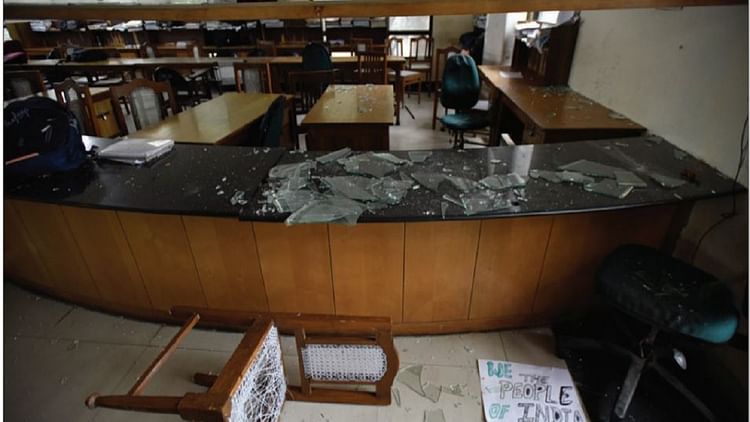Harsh Mander, who resigned from the IAS to work in the social sector, says he is aghast at the conduct of Delhi Police in the past few years.“This is the first time an attempt has been made to convert Delhi Police into a political tool as had happened in 2002 in Gujarat,” he says while citing his own experience. Protests against the Citizenship Amendment Act (CAA) were used by Delhi Police to explain the week-long rioting in North-East Delhi in February 2020.
“Everyone knows that the protests were absolutely non-violent. And yet, I myself was accused of being a part of a campaign to overthrow the government. This goes beyond all professional ethics. Not that this kind of unprofessional dealing was not there earlier but never was it so blatant and brazen.This is both dangerous and suicidal.”
What is the culpability of the Union Home Minister Amit Shah to whom Delhi Police reports? Would he subscribe to the widespread belief that it is the HM who has been arm-twisting Delhi Police?“I can only assume that this was being done at the behest of the Home Ministry.Why would Delhi Police ruin its own reputation like this otherwise,” Mander wonders aloud.
The conduct of Delhi Police at Jamia Millia University campus in December 2019 was inexplicable. The uniformed force had maintained exemplary discipline in the past in the face of grave provocations. Even when lawyers beat them up, Delhi Police did not barge into Saket or Tees Hazari court to retaliate. But when a DTC bus was set on fire by miscreants during a protest march by students against CAA, police went berserk. It barged into the campus, smashed CCTV cameras in the library and assaulted whoever they came across. Their behaviour was caught on camera and circulated in real time through mobile phones.
Barely a fortnight later, Delhi Police in January 2020 stood watching as an armed mob invaded the JNU campus and went on a rampage. Hostels were ransacked; students and teachers were assaulted and dining rooms etc. were vandalized. Video clips identified many of the culprits, among them an ABVP activist Komal Sharma, but Delhi Police stood outside the campus in silence. They kept a crowd, assembled in response to calls for help from JNU students, at bay and did not allow them to enter. But ensured that the rampaging mob did their job and melted away.
In February end, Delhi Police, arguably among the best equipped and trained, allowed rioting in North-East Delhi. Once again video clips caught some of them smashing CCTV cameras, others pelting stones with the mob.Police stations did not respond to emergency calls and policemen remained passive for days. No order from superiors to act was explanation.
In March, the police swung into action against the Tableeghi Jamaat and arrested a large number of Muslims staying in the Jamaat campus at Nizamuddin, accusing them of spreading the coronavirus and breaching lockdown restrictions. The cases fell through and most of the arrested were let off. It was an international embarrassment.
During the lockdown, Delhi Police went on an overdrive, arresting JNU and Jamia students and social activists under draconian laws, interrogating Mander and prof Apoorvanand and accusing them of engineering the riots. They have been filing chargesheets too but increasingly courts are calling the bluff, pointing at shoddy investigation and no application of mind.
This period has also seen Delhi Police being headed by as many as four Police Commissioners including the present CP, Rakesh Asthana, an IPS officer of the Gujarat cadre. While Delhi Police finds itself at the receiving end of tongue lashings by the court and public criticism, what is the responsibi-lity of Amit Shah and his ministry?
Was it a blunder to have lodged so many chargesheets without sufficient evidence or was it pressure from the ministry that forced hands of Delhi Police? Would it have been any different if Delhi Police were under Delhi Government? “I don’t know if they would be any different. But at latest there would be greater accountability,” says Mander.
Says a former Police Commissioner, “It is dangerous to say anything these days. But it is obvious that Delhi Police have not been doing their duty in the ‘riot cases’. There were political pressures in our time too but that did not prevent us from enforcing the law. No one can tell me what to do nor can I tell my subordinates what to do because our mandates have always been very clear.”
Amod Kanth, a former DCP in Delhi Police, however is not convinced with many of the sharp observations by courts against DP in recent months. “I have been following court orders and I am often not satisfied with their interpretation. I think it was unfair to pull up Delhi Police for registering too many FIRs. The police has a duty to register FIRs when there are complaints, they can cancel them later if there is no proof,” says Kanth.He blames mishandling of riots on the incompetence of then CP Amulya Patnaik. But he commends S.N. Srivastava who followed Patnaik and allowed 750 FIRs to be lodged.


























































































